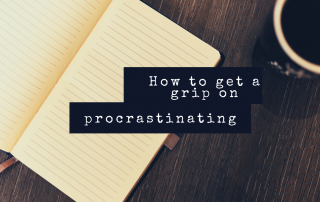 It is a well- known fact that the lack of sleep causes increase in anxiety and depression. But did you know that we’re making it worse by thinking we NEED to sleep, and if we don’t, we can’t function? These thoughts alone make anxiety about lack of sleep much worse than it really needs be.
It is a well- known fact that the lack of sleep causes increase in anxiety and depression. But did you know that we’re making it worse by thinking we NEED to sleep, and if we don’t, we can’t function? These thoughts alone make anxiety about lack of sleep much worse than it really needs be.
When clients say to me: ‘I can’t sleep, no matter how hard I try’, I say: ‘So don’t sleep; find something else to do at night. Something that makes you happy, something you may not have time for in your busy schedule.’
Whether it’s reading a book or listening to a music, doing something pleasurable makes all the difference to how you feel about a lack of sleep, or sleep in general.
If you relax this idea that ‘you absolutely have to sleep in order to function’, the sleep will come back naturally for you.
People try different methods of bringing back their sleep: alcohol, drugs, pills. But these do not bring your sleep back in its optimum state; you will not feel as refreshed as when you get your natural sleep.
Change your relationship with sleeping. Trust your body to navigate sleep as it needs to. Sleep is NOT an absolute must. Many people function on a couple of hours a night, others need at least 8 hours of sleep to function- we are all different.
Each one of us will go through stages of insomnia at some point in our lives. Don’t stress about it; relax about it and enjoy other activities until you fall back into your usual sleep routine. Because it will come back if you’re relaxed about it.
So think of your sleep as a pleasurable activity during which your brain ‘sorts out information and experience you have gained that day’. And this ‘cleaning up’ while we sleep feels nice.
If you think of your sleep as a pleasure rather than a must, your sleep will return to you.
*Do you suffer from Sleep Problems? Request a Complimentary Consultation with me to explore how Cognitive Behavioural Therapy & Coaching could help you:
Further articles you may like:
1606, 2023
708, 2022
1707, 2022
Anxiety And Procrastination At Work
Can Anxiety cause Procrastination? Absolutely. Anxiety and Low Mood can both result in Procrastination at work. In this article, I'm going to take a closer look at what Procrastination is, and how to help yourself if you struggle with Anxiety AND procrastination. Let's start with Procrastination: First of all, people mistake procrastination
2606, 2022
405, 2022
Assertiveness Mastery: 9 Effective Steps to Improve Assertiveness Skills and Boost Self-Confidence
In today's fast-paced world, mastering assertiveness skills has become an essential tool for personal and professional growth. It's not just about being confident; it's about communicating your needs and respecting others in a balanced and healthy way. I've recently launched a new book, 'Building Assertive Mindset: A Guide to
1204, 2022
 It is a well- known fact that the lack of sleep causes increase in anxiety and depression. But did you know that we’re making it worse by thinking we NEED to sleep, and if we don’t, we can’t function? These thoughts alone make anxiety about lack of sleep much worse than it really needs be.
It is a well- known fact that the lack of sleep causes increase in anxiety and depression. But did you know that we’re making it worse by thinking we NEED to sleep, and if we don’t, we can’t function? These thoughts alone make anxiety about lack of sleep much worse than it really needs be.



